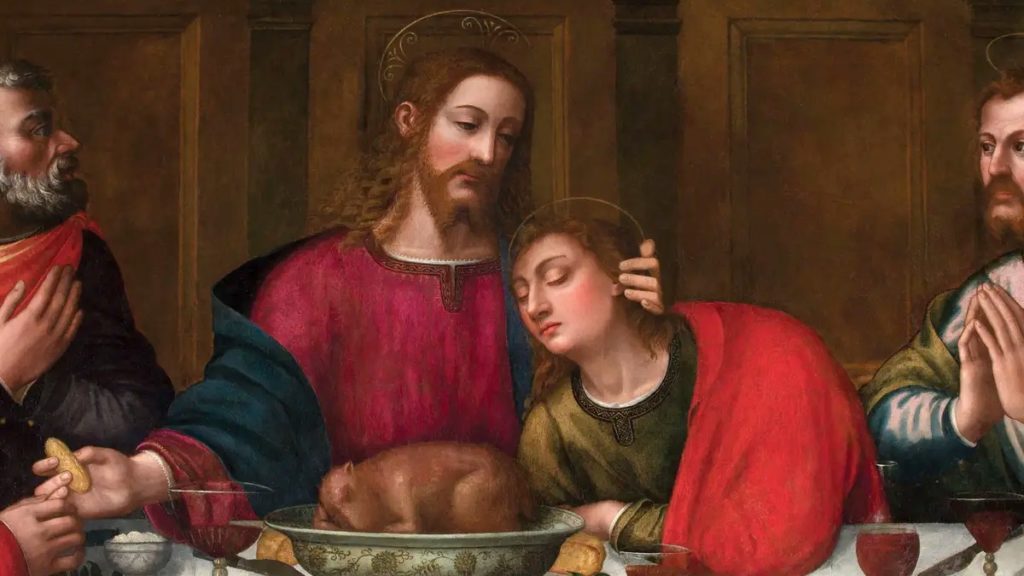For too many years, for me, Christ was simply Jesus’ last name: Jack Smith, Susan Parker, Jesus Christ. Intellectually, I knew better; but practically, both in my private faith and as a theologian, I functioned as if Christ were simply Jesus’ surname. Whether in prayer, writing, or preaching, I almost always used the two names together, Jesus Christ, as if there were a perfect identity between the two.
There’s not. Jesus is a divine person inside the Trinity, someone who once walked this earth as a flesh and blood individual and who now is with the Father as part of the Godhead. And although he is also the key component inside the reality of Christ, Christ is more than Jesus.
Christ is a mystery, which also includes us, Jesus’ followers on earth, the sacraments, the word (Scripture), and the Church. Scripture is clear: We are the body of Christ on earth. We don’t represent Christ, replace Christ, or are some vague mystical presence of Christ. We are the body of Christ, as too are the Eucharist and the word (the Christian Scriptures).
That distinction has huge implications both for our private faith and for how we live out our faith in the Church. To simply identify Jesus and Christ impoverishes our discipleship, irrespective of which name (Jesus or Christ) we most relate to.
Let me begin with a mea culpa: In living out my faith, I more easily and existentially relate to Christ than to Jesus. What that means is that I have a belief in and a lifelong commitment to the reality of the resurrection, to Jesus’ teaching, to the Church, to the sacraments, and to the Christian Scriptures. I believe that participation in the Eucharist is the single most important thing I do in life, that the Sermon on the Mount is the greatest moral code ever written, and that the Church, despite all its faults, is the body of Christ on earth.
But, unlike many of the faith-filled mystics and saints that I read, and unlike many of my Evangelical friends and colleagues, I struggle to have a real sense that Jesus is an intimate friend and lover. I struggle to be the beloved disciple in John’s Gospel who has his head reclining on the breast of Jesus and for whom one-to-one intimacy with Jesus relativizes everything else.
I know that Jesus is real and wants a deep one-to-one intimacy with each of us; but truth be told, I struggle to actually feel that most days and to make it the central part of my discipleship. Commitment to the Eucharist, Jesus’ teaching, and the Church are, save for graced affective moments in prayer, the heart of my faith and lived discipleship. Habitually I relate more to Christ than to Jesus.
And, let me risk adding this: I believe that is also true for various Christian churches. We have churches that relate more to Christ and churches that relate more to Jesus (not that either excludes the other). For example, my own church, Roman Catholic, is a very Christ-centered church. Ecclesial community, Eucharist, the sacraments, and Jesus’ teachings are key. No true Roman Catholic can ever say that all I need is a private relationship to Jesus. That is also true of most Anglicans, Episcopalians, and mainline Protestants. It is less true for churches within the Evangelical family, where the salient mandate in the Gospel of John to have an intimate relationship to Jesus more easily becomes the central tenet within Christian discipleship.
It is not that the different churches exclude the other dimension. For example, Roman Catholicism, Anglicanism, and mainline Protestantism emphasize private prayer as a means to relate to the person of Jesus as an intimate friend and lover. To this, Roman Catholicism brings its rich (sometimes over-rich) tradition of devotional prayer. Conversely, Evangelicals, with their strong focus on Jesus, use communal services of the word and preaching as their major way to relate to the wider mystery of Christ.
We have something to learn from one another. Churches, just as individuals, must be about both, Jesus and Christ, that is, focused on a personal relationship with Jesus and participation in the historical incarnational mystery of Christ, of which each of us is part. We must be focused on Jesus, but also on the Eucharist, the word, and the community of believers — each of which is the Body of Christ.
Our faith and discipleship must be both deeply private and visibly communal. No Christian can legitimately say, my discipleship consists wholly in a private relationship to Jesus, just as no Christian can legitimately say, I don’t need Jesus, I only need church and the sacraments.
We are disciples of Jesus Christ, both the person and the mystery. We are committed to a set of teachings, a set of Scriptures, the Eucharist, and to a visible community we call the Church — as well as to a person named Jesus who is the heart of this great mystery and who wants to be our friend and lover.

